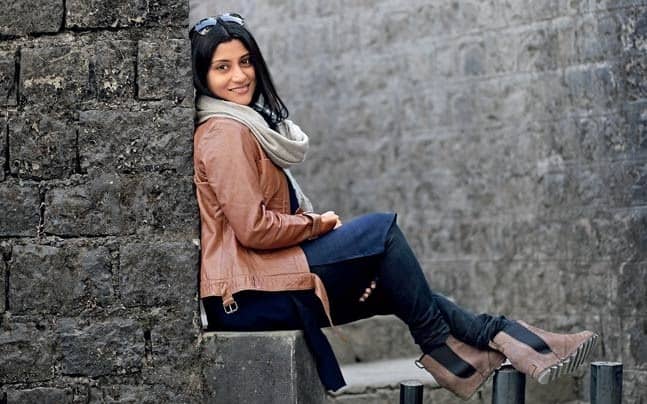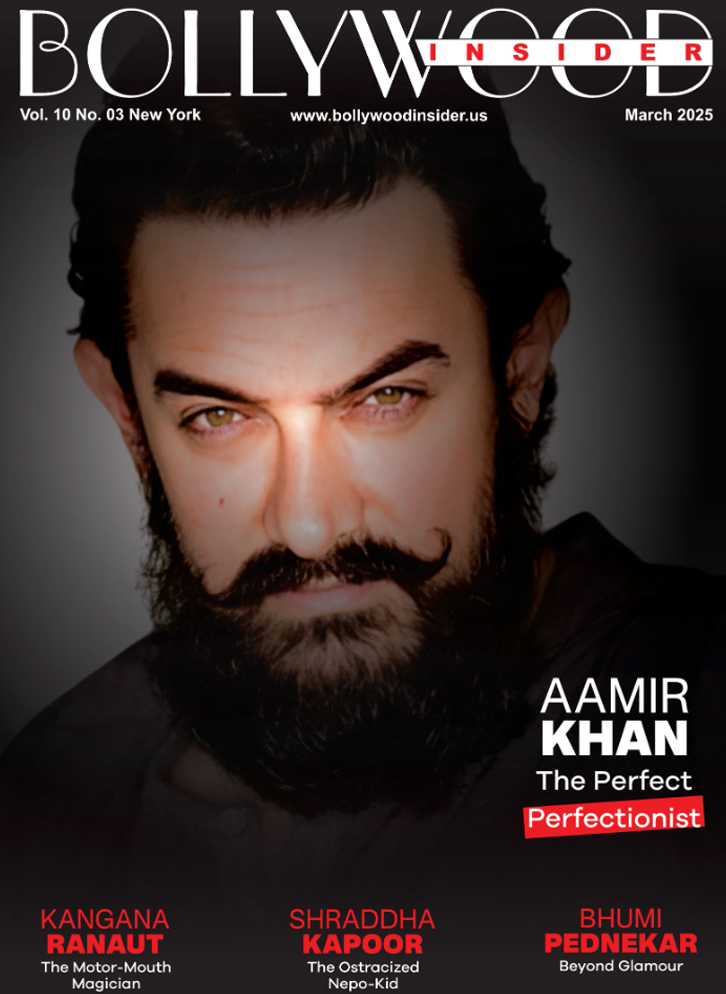“I won’t direct unless I’m truly convinced”
Deepali Singh
Konkona Sen Sharma has never done a film to impress the audience. Instead, filmmaker Aparna Sen’s daughter has picked up roles that have resonated with her. So, whether it was as a journalist in Page 3 or as a girl who migrates to another city for work in Wake Up Sid, the two-times National Award winner has only gone from strength to strength.
Two years ago, she picked up the director’s baton to give us the wonderful movie, A Death in the Gunj. And now, she will soon make her foray into the web space directing a web-series.
Your film Dolly Kitty Aur Woh Chamakte Sitare recently had its premiere at the Busan International Film Festival. How was the response to it?
The film recently got ready and I watched it for the first time with the Korean audience at Busan. It was quite interesting because I think they really connected with the film. There are a lot of shared experiences that women across cultures can connect with. The screening was followed by some really interesting interactions with the audience and so, I thought it went off really well.
You have worked with director Alankrita Shrivastava earlier in Lipstick Under My Burkha. Was that one of the reasons you greenlit this film?
Definitely, Alankrita was one of the reasons because I had a lovely time working with her in Lipstick… as well. Also, there is now a certain element of trust in the kind of work she does. The script, too, was lovely. I read it very quickly because it was such an unusual, well-written script.
Right from your mother Aparna Sen, to Tanuja Chandra, Zoya Akhtar, Meghna Gulzar to Alankrita Shrivastava and Seema Pahwa among others, you have worked with a number of women directors. Being one yourself, do you feel there is something called female gaze?
I don’t think you can ever substitute a community for an individual. So, not all women approach films in the same way. I would say there is something called the female gaze which is different from the male gaze. However, I have found that often, women can be very patriarchal and regressive in their attitude. So not all women have the same ideological outlook. And to me that’s the first way of confining or limiting any community.
Do you feel that roles for women have become better, more substantial in the last decade or so?
I often hear that films are getting better for women and that women’s roles have become better. I hope they are. I think that there were fantastic films being made even in the 70s, which had some good roles for women. Every year, there have been some films which have been very sensible and progressive. But I would still say the vast majority of the film industry is not like that.
You will also be seen in Seema Pahwa’s directorial Ramprasad Ki Tehrvi. We read somewhere that you were looking for excuses to not to do the film as you felt you couldn’t do the role.
Well, it’s a lovely role and full of great doyens of cinema and theatre. So, briefly I considered to up and run! (laughs) But of course, there was a greed to work with so many talented people. I did have a few moments of cold feet but I’m glad I stuck through.
After working in more than 40 films, what are the kind of roles and films you look forward to?
I think a well-written script is the first thing. Often, they are so badly written that I wonder like, how am I even going to go through the whole thing. It takes forever to even finish it. Then, the director matters a lot as well. What work have they done before, how good they are, have I worked with them before, etc. A well-etched out part and an interesting world is what I hope to be a part of. I like it when something comes out authentic as opposed to generic.
You had also mentioned once that it’s not so much the story but the way it’s told that’s important…
Yes, and I think that one can see it in the way the script reads and flows. What I think I also meant is, that there are only so many stories. Nothing is new anymore. The context may be new, like how the conflicts, whether external or internal have continued forever. That’s why I must have said it’s how something is executed that makes all the difference.
You tuned director in 2017 with A Death In The Gunj. Would you say that the experience has made you a better actor and vice versa?
I think I’m a more considerate actor now. I was never the type of actor who throws tantrums as such but I feel I’m just more amicable than I was before (laughs). I think it also helped me, having acted for so many years, when it came to direction. To begin with, I was very comfortable on the film sets, as I have been going there since I was a kid. It’s a world I’m very familiar with. Sets are a lot of high stress environment, there are a lot of people and it’s often very chaotic. So, if one is familiar with that and how it works, I think it can only be an advantage. Even being an actor, it helped me to see the problems in doing the scene. I find it very useful to try something out as an actor and check if it’s working first.
A Death in the Gunj received so much critical acclaim but we are yet to see another film from you as a director…
Well, I’m trying to write and it’s a long and difficult process for me. I don’t want to direct for the sake of directing. I don’t feel the pressure of having to direct every year because I also have acting projects. I won’t direct unless I’m truly convinced.
For somebody who did not even want to act, to being counted among the most talented actors in country, do you sit and introspect about your journey?
Yes, I do, because I never wanted to be an actor and I never thought I’ll direct. So, the one thing is you really can’t plan anything in life. You can just work hard and enjoy the moment. The journey has been interesting because it teaches you not to take life or yourself so seriously.
Is there anything on your wishlist as an actor or a director?
As an actor, I would like to do a role where I speak in English. I often end up doing roles that are very different for me, like somebody living in Bhopal and somebody speaking in a UP dialect. I wish I could do a role that’s more similar to me, which is in English and which is a grey character, also a little more urban.






